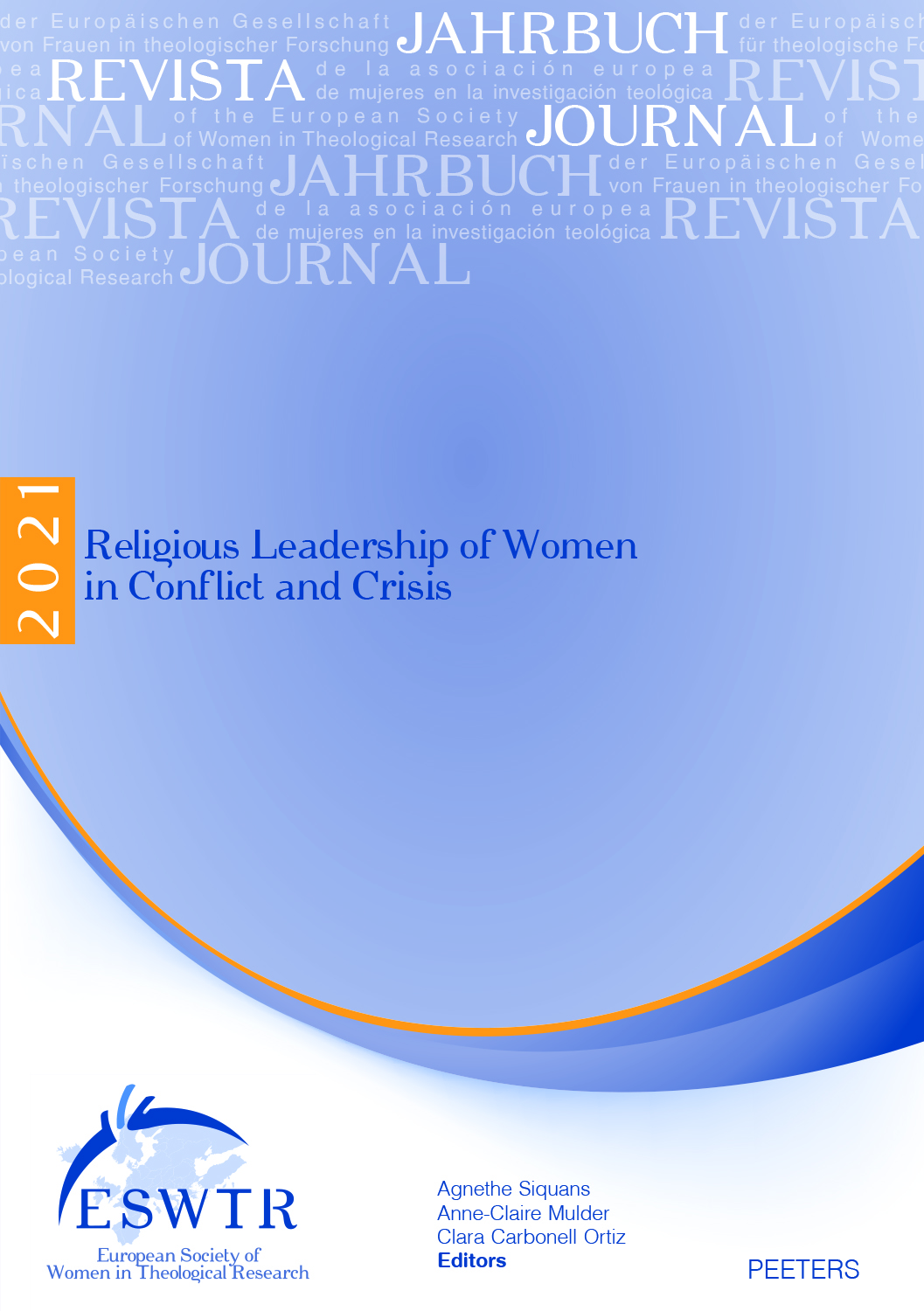 previous article in this issue previous article in this issue | next article in this issue  |

Preview first page |
Document Details : Title: Zur Übersetzung von Texten aus dem Johannesevangelium in 'gerechte Sprache' Subtitle: Anmerkungen zu einem schwierigen Projekt Author(s): HARTENSTEIN, Judith , PETERSEN, Silke Journal: Journal of the European Society of Women in Theological Research Volume: 9 Date: 2001 Pages: 163-177 DOI: 10.2143/ESWTR.9.0.2002912 Abstract : This article documents the work of its authors in a project which aims to produce a new German translation in “inclusive language” of the lectionary texts of the German Protestant Church. These translations seek to avoid androcentric mistakes in translation, anti-semitic formulations and a one-sidedly masculine image of God. For texts from the Gospel of John problems are posed by the translation of terms referring to groups and of general statements formulated in masculine terms, by the Johannine use of the term “the Jews”, by the Greek words generally translated into German as “Herr” (“Lord”) and “Herrlichkeit” (“glory”; this latter does not present a problem in most other languages), and the use of masculine terms to refer to the divinity (e.g.: “Father”, “Son”, “Spirit”, “Paraclete”). The authors discuss both linguistic problems and the problems of content which arise, for instance, from the historical changes in the relationship to Judaism. They describe their own suggestions for solutions and offer their ideas for translations: neutral or less loaded formulations; the explicit naming of women and the effects of this for the interpretation of texts; the attempt to make clear the historical situation of the gospel; the search for new ways of speaking about God. The article concludes with a reflection about the function and the boundaries of translation. L’article documente le travail de ses auteures dans un projet en cours de réalisation dont le but est de présenter une nouvelle traduction du lectionnaire de l’Église Protestante d’Allemagne visant à éliminer les erreurs “androcentriques”, à contourner les formules antisémites et à éviter la propagation d’une image de Dieu masculine, et donc de parti-pris. Des solutions sont recherchées pour les termes génériques et collectifs de genre masculin dans l’Évangile selon saint Jean, “les Juifs” par exemple, les mots grecs traduits par “Herr” (Seigneur) et “Herrlichkeit” (gloire, ce mot contenant en allemand la syllabe Herr = Seigneur), ou les désignations masculines “Père”, “Fils”, “Esprit” et “paraclet” pour les personnes divines. Les auteures exposent le problème linguistique et le problème de fond résultant par exemple des changements historiques dans le rapport au judaïsme. Leurs propositions de traductions pour certains passages préconisent des formules neutres ou moins connotées, la mention explicite des femmes quelles qu’en soient les conséquences pour l’interprétation des textes, la tentative d’expliquer la situation historique de l’Évangile, et de trouver d’autres mots pour désigner Dieu. L’article se termine par une réflexion sur le rôle et les limites de la traduction. |
 |


